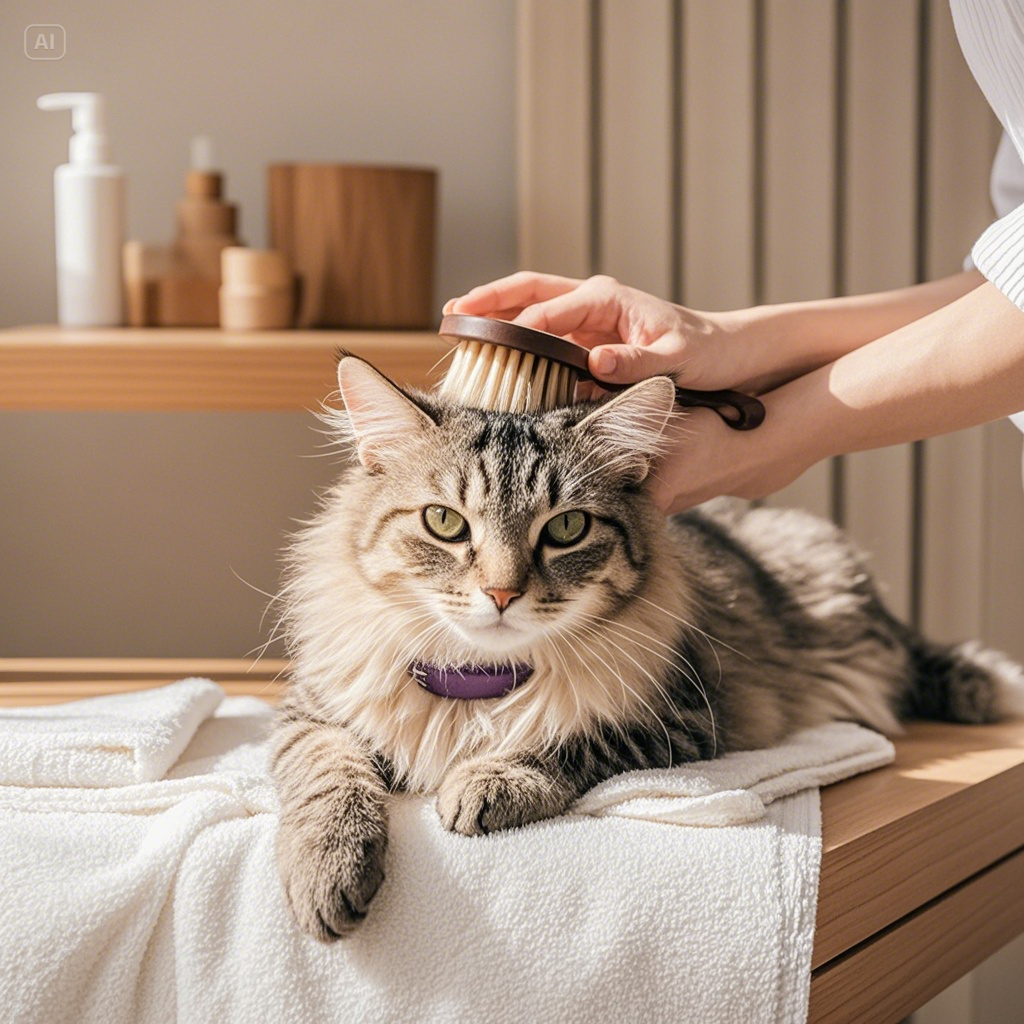Introduction
Bringing a new cat into your home is an exciting experience. To ensure a happy and healthy life for your feline friend, it’s crucial to understand the basics of cat care. This comprehensive guide will provide you with essential tips on feeding, grooming, litter box maintenance, and overall well-being.
Feeding Your Cat
Choosing the Right Food: Opt for high-quality cat food that meets your cat’s nutritional needs. Consider factors like age, breed, and activity level when selecting food.
Feeding Schedule: Establish a regular feeding schedule to maintain your cat’s digestive health. Consult your veterinarian for specific recommendations based on your cat’s age and weight.
Fresh Water: Always provide fresh, clean water in a bowl that’s easy to access. Cats can become dehydrated if they don’t have easy access to water.

Grooming Your Cat
Brushing: Regular brushing helps remove loose hair, prevents matting, and reduces shedding. Use a brush suitable for your cat’s hair type.
Nail Trimming: Trim your cat’s nails every few weeks to prevent scratching and injury. Use a pet-safe nail clipper and be cautious not to cut too close to the quick.
Bathing: While most cats are self-cleaning, occasional baths may be necessary, especially for long-haired breeds or cats with skin conditions. Use a gentle cat shampoo and avoid getting water in their ears.

Litter Box Maintenance
Litter Box Placement: Place the litter box in a quiet, private area away from noisy appliances and high-traffic areas.
Litter Box Cleaning: Scoop out solid waste daily and change the litter completely at least once a week.
Litter Box Size: Ensure the litter box is large enough for your cat to comfortably turn around in.
Litter Type: Experiment with different litter types to find what your cat prefers. Consider factors like clumping, odor control, and dust level.
Creating a Safe Environment
Indoor Safety: Cat-proof your home by removing potential hazards like toxic plants, small objects, and unsecured cords.
Outdoor Access: If you allow your cat outdoors, consider a secure enclosure to prevent accidents and encounters with predators.
Playtime: Provide toys and interactive play sessions to keep your cat mentally and physically stimulated.
Perches and Hiding Spots: Offer various perches and hiding spots to satisfy your cat’s natural instincts.
Health and Wellness
Regular Vet Checkups: Schedule annual veterinary checkups to monitor your cat’s overall health and address any potential issues.
Vaccinations: Keep your cat up-to-date on vaccinations to protect against common feline diseases.
Dental Care: Brush your cat’s teeth regularly or schedule professional dental cleanings to prevent dental problems.
Parasite Prevention: Use appropriate flea and tick prevention products to protect your cat from parasites.
Common Cat Behavior Issues
Scratching: Provide scratching posts and discourage scratching on furniture by redirecting their behavior.
Excessive Meowing: Identify the cause of excessive meowing, such as boredom or medical issues, and address it accordingly.
Aggression: Consult with a veterinarian or animal behaviorist to understand the underlying causes of aggression and develop appropriate strategies.
Conclusion
By following these essential cat care tips, you can provide your feline friend with a happy, healthy, and fulfilling life. Remember to observe your cat’s behavior, respond to their needs, and seek professional advice when necessary. With love and proper care, your cat will be a cherished member of your family.
